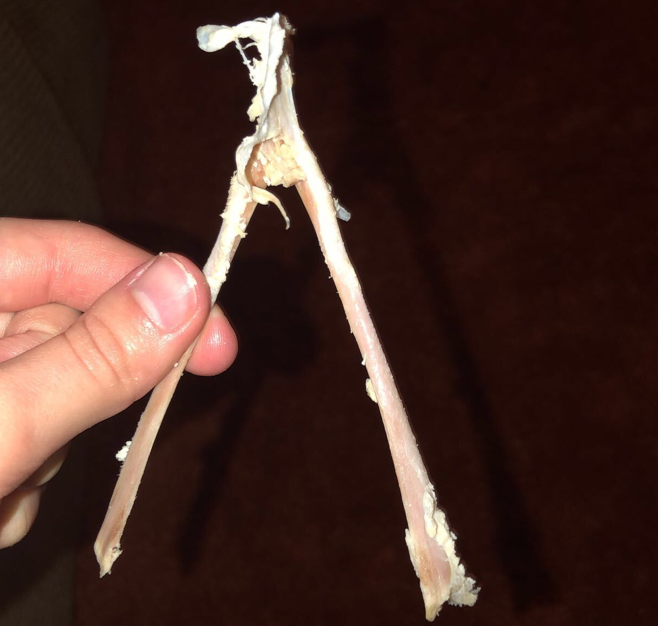


One of the elves working with Tom on items for his website asked Tom an interesting question that we found when reviewing the interview tapes. You see, we record our sessions with the Legendary Figures, because you never know when you have to go back and review what was said. Elves are not really great note takers, and we have found the recordings to be more dependable when it comes to getting the facts straight.
But anyways, back to the question. The following is a transcript that is between Tom the Turkey and Eugene Becklner (one of our researcher elves). Eugene asked Tom, Where did that superstition about the wishbone come from?
Tom: I cannot believe you asked me that... gobble, gobble.
Eugene: Well, I was working on these FAQ questions, and one of them was about the wishbone... I didn't mean to upset you, I was just curious.
Tom: Oh well, that's ok; you know I am a little edgy this time of year. You see, that superstition actually started many, many, man... gobble, gobble... ny years ago. Back during the times right before the Romans.
Eugene: Really, it is that old?
Tom: Yes. You see there was this group of people called the Etruscans...
Eugene: Etru...
Tom: Yes, the Etruscans. You see, they believed that fowls, like myself, were soothsayers.
Eugene: soothsayers?
Tom: Gobble, Gobble... yes... those who could tell the future. Well anyways, that is when they believed that... and this is hard for me to say... gobble gobble, that my collarbone had special powers.
Eugene: Wow... really?
Tom: Yes, and the Romans took over this thought and believed that if you would take out the bone… then two people rub it and make a wish... then each person take a side and pull... the one who... gobble gobble, got the biggest piece would get their wish. This is how it became to be called the wish bone.
Eugene: Oh... Ok, I see, hmmmmm...
Tom: Why are you looking at me like that?
Eugene: What, no... I'm not... nothing.
Tom: Yeah... Gobble, gobble... don't get any ideas.
Eugene: Tom, I would never...
Tom: Ok, well anyways... that tradition carried on throughout the years. Most people think is just an American tradition.
Eugene: Oh, yeah?
Tom: Yes, but the pilgrims actually brought that with them from England. Actually, In England they used to call it the merrythought.
Eugene: The merrythought?
Tom: Yes, because the wishbone is sometimes associated with festive holiday feasts and the thought or promise of the wish coming true.
Eugene: Oh, I see...
Tom: Yes, and even in the 1930's they used to have postcards that would show pictures of wishbones.
Eugene: Wow, so it is a pretty big custom then huh?
Tom: Yes, yes, it is... unfortunately... but you know what...
Eugene: What?
Tom: Chickens have wishbones too.
************** END OF TAPE